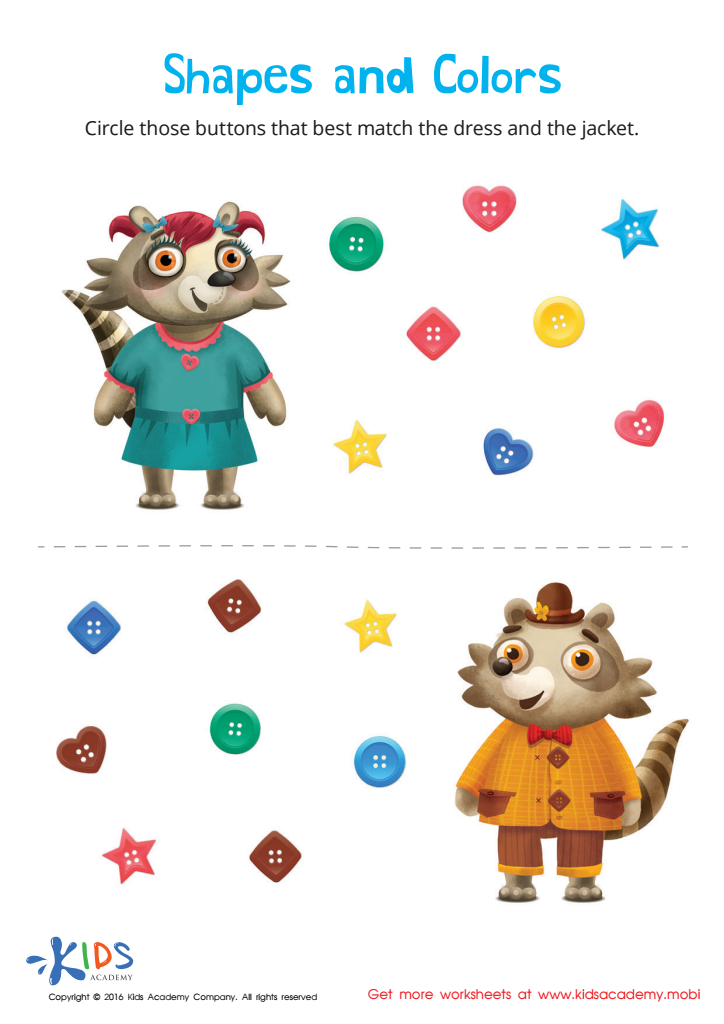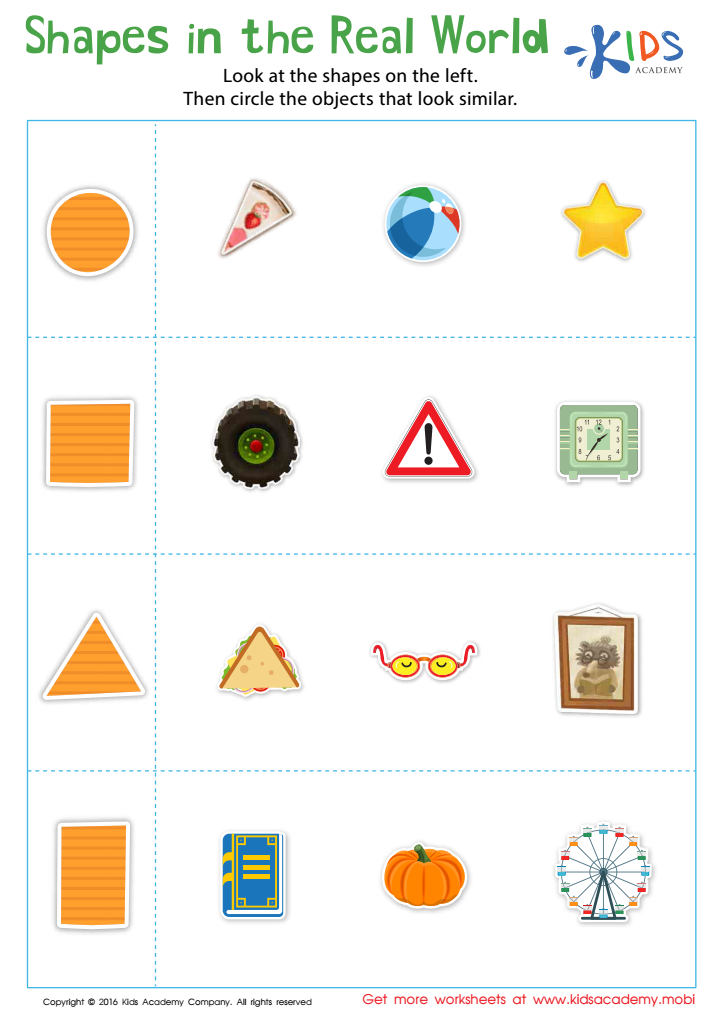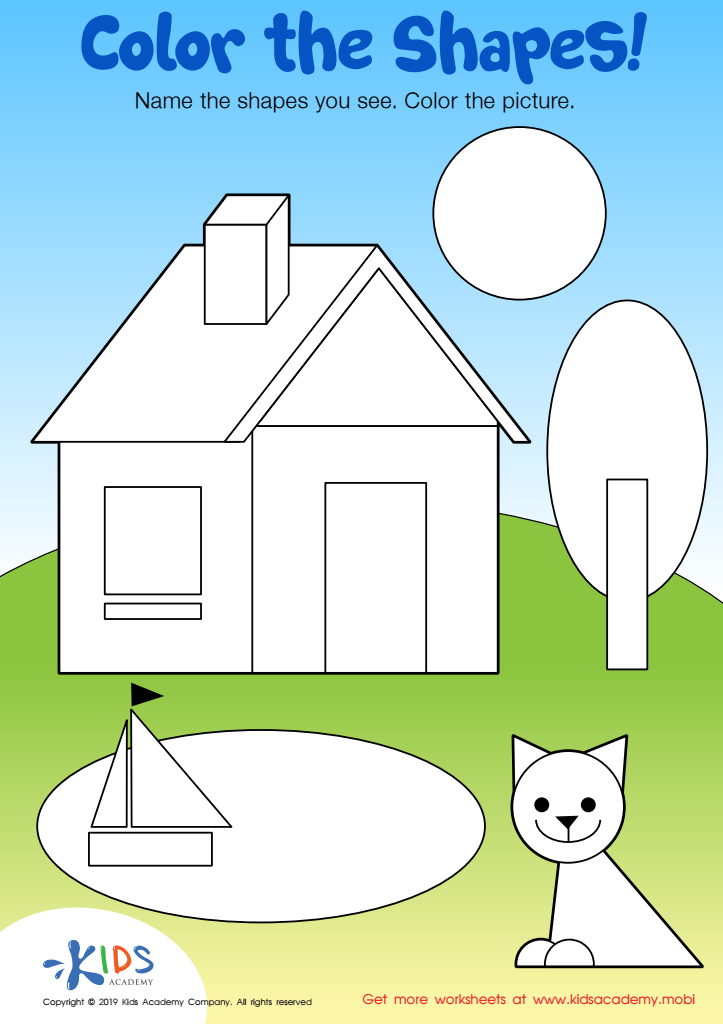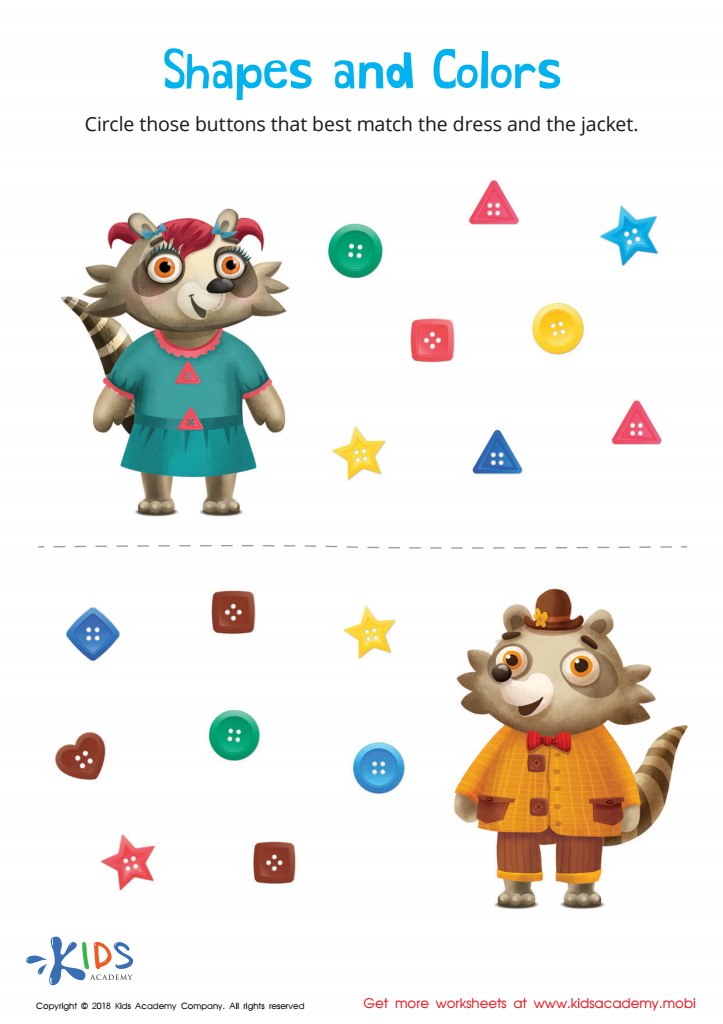Color Identification Geometry Worksheets for 4-Year-Olds
4 filtered results
-
From - To
Discover an engaging collection of Color Identification Geometry Worksheets designed specifically for 4-year-olds! These vibrant worksheets help young learners develop essential skills by combining color recognition with basic geometric shapes. As children explore various colors and forms, they enhance their cognitive abilities, fine motor skills, and visual discrimination. Each worksheet features playful designs that capture children's attention, making learning a fun and interactive experience. Perfect for early math education, these resources provide a solid foundation for geometry while fostering creativity and imagination. Download and print these worksheets today to kickstart your child's journey into the colorful world of shapes!


Matching: Shapes and Colors Worksheet


Shapes in the Real World Worksheet


Color the Shapes Worksheet


Shapes and Colors Worksheet
Color identification and geometry play crucial roles in the cognitive and emotional development of 4-year-olds. At this age, children are naturally curious and eager to explore their surroundings, making it an ideal time to introduce foundational concepts in both areas. Understanding colors helps enhance their vocabulary and communication skills, as children learn to express their preferences and describe their environments using color terms.
Geometry introduces young learners to shapes, spatial awareness, and problem-solving abilities. Learning to identify shapes and colors not only fosters critical thinking but also lays the groundwork for more complex mathematical concepts down the line. Activities that involve sorting and classifying shapes by color encourage exploration and creativity, promoting independent thinking.
Furthermore, engaging with these concepts can help build fine motor skills through activities like coloring and shape sorting. Parents and teachers play a pivotal role in nurturing these skills. By creating a supportive environment infused with playful learning opportunities, they can instill a love for math and arts early on.
In summary, parents and teachers should prioritize color identification and geometry for 4-year-olds, as these foundational skills contribute significantly to cognitive, emotional, and social growth, laying the groundwork for future learning successes.
 Assign to My Students
Assign to My Students






























